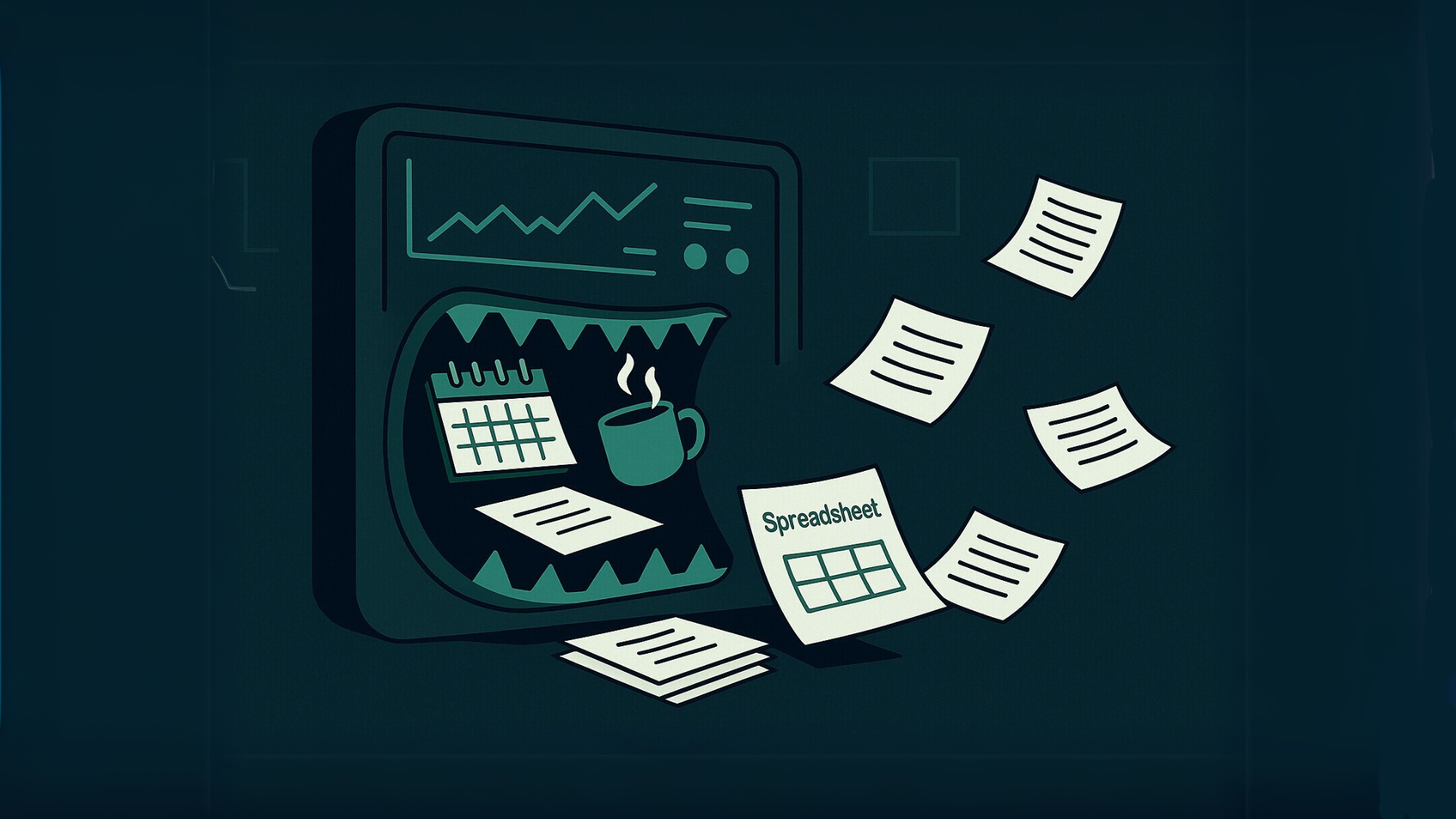The Dashboard That Eats Your Week (Every Week)
Without a modern data stack, your dashboards devour time, sanity, and sleep.

Spreadsheets are the duct tape of modern business. They're flexible, familiar—and dangerously overused.
Every ops team uses them—whether to track orders, pull weekly KPIs, or build ad hoc dashboards. They’re flexible, familiar, and (at first glance) free. But that flexibility hides a cost.
As your business scales, so does the complexity—and suddenly, your “quick fix” spreadsheet becomes the bottleneck. Manual updates. Siloed files. Broken formulas. Missed decisions.
In fast-moving teams, the true cost of spreadsheet-based ops often hides in plain sight—not just in time lost or formulas gone wrong, but in patterns that quietly compound.
What starts as a quick report becomes a recurring 5-hour weekly ritual.
Teams waste time copying data between systems, cleaning up typos, double-checking numbers, and reformatting for executives. It’s busywork disguised as productivity.
Add your content here.
Spreadsheets aren’t systems
—they’re artifacts.
Each file lives on a desktop or inside an email thread. There’s no central source of truth, and no easy way to tie together marketing, sales, finance, and product data. Insights stay stuck.
Add your content here.
Spreadsheets break silently.
One accidental edit or miscopied formula can cause bad numbers to propagate through dashboards and forecasts. Worse, no one may notice until a board meeting—or a customer—asks the wrong question.
Add your content here.
Spreadsheets are snapshots, not streams.
You’re always looking in the rearview mirror. By the time data is pulled, cleaned, and summarized, it's outdated—and decisions are based on stale insights.
Add your content here.
Sharing a spreadsheet sounds simple—until five people are editing different versions.
Comment threads multiply. "Final_v3_Updated" files stack up. Ops teams become referees instead of enablers.
Add your content here.
Ops professionals become human APIs.
Pulling data from one system, transforming it in a spreadsheet, and pushing it into slides.
It’s manual, brittle, and exhausting. And it scales… poorly.
Add your content here.
Spreadsheets feel agile. Need a quick report? Copy, paste, done.
But that agility is fragile. It only works when the data volume is low, the team is small, and the stakes are low. When your company starts scaling, things break.
Suddenly, agility becomes inconsistency. Flexibility becomes chaos.
And speed? It turns into fire drills.
Some signs it’s time to level up:
If this feels familiar, you’re not alone. And there’s a better way.
The best ops teams aren’t faster with spreadsheets. They’ve moved beyond them.
Modern operations rely on connected, cloud-based systems:
And all of it works without ops teams spending hours every week manually gluing systems together in Excel or Google Sheets.
Spreadsheets are powerful tools. But they’re not foundations.
They’re perfect for exploration, modeling, and quick analysis.
They’re not built for scale, security, or shared understanding across teams.
The real ops unlock? Knowing when it’s time to move on.
If this post hits a little too close to home, you’re not alone.
Most teams aren’t sure when to move beyond spreadsheets—let alone how.
That’s why we’re offering one-on-one Data Maturity Assessments to help teams understand where they stand, what’s working, and where a modern approach could save time, stress, and rework.
We’re offering these one-on-one's for free while we refine the appraoch. Book your spot now.

Without a modern data stack, your dashboards devour time, sanity, and sleep.

Everyone Wants AI. Few Have the Data Stack to Support It. There’s no shortage of AI tools promising to transform your business. Smart workflows,...